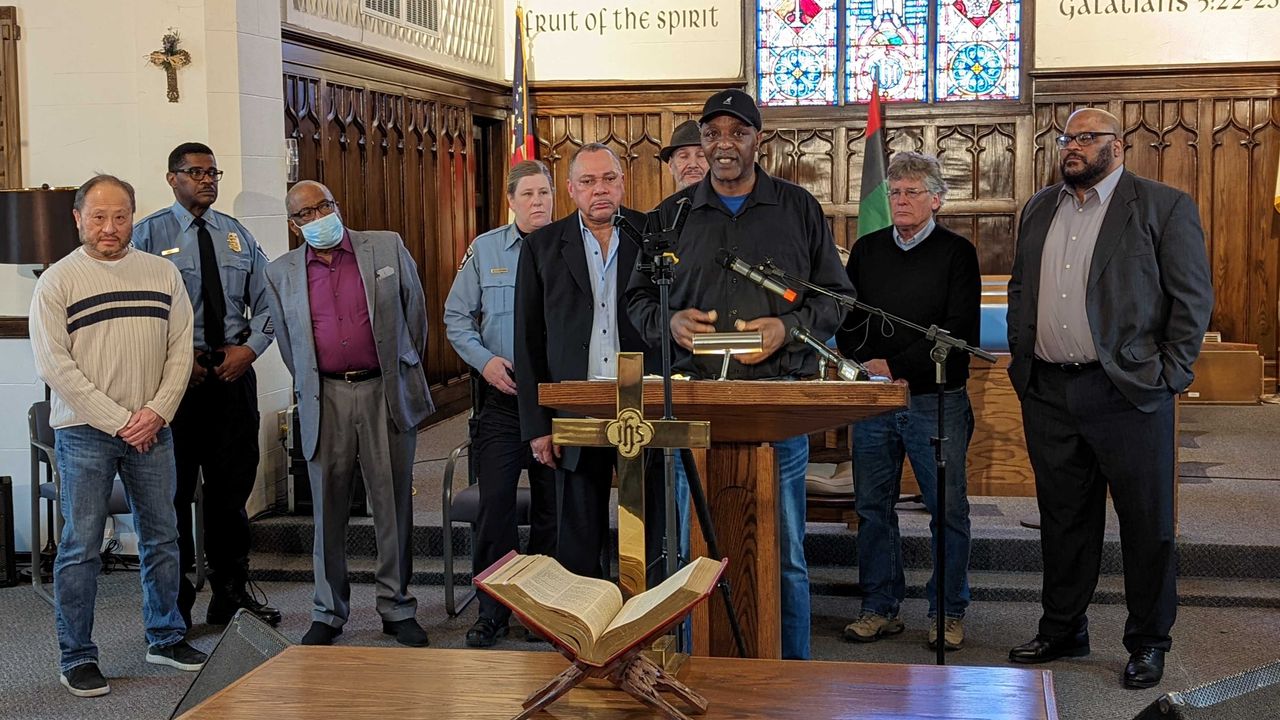Unity Community Mediation Team, CAIR-MN respond to MDHR report
[anvplayer video=”5105757″ station=”998122″]
A day after the Minnesota Department of Human Rights (MDHR) released its investigative report, finding a pattern or practice of race discrimination in the city of Minneapolis and the Minneapolis Police Department, community members are responding.
The Unity Community Mediation Team (UCMT), which consists of a diverse group of community leaders, reacted to MDHR’s findings on Thursday morning.
UCMT says it has been working with Minneapolis police to address many of the things mentioned in the report for several years.
“This report is explosive, but it covers the same issues the Unity Community Mediation Team has been working on for the last 20 years while so many of the policy makers have been turning a blind eye,” Ian D. Bethel, chairperson of the Unity Community Mediation Team, said in a statement. “The UCMT has been at the table with MPD for nearly two years shaping a new agreement that brings back the Police Community Relations Council, PCRC, by updating our 2003 MOA with the MPD that Chief Arradondo called his Bible.”

The Unity Community Mediation Team responds to findings of discriminatory practices in Minneapolis, MPD. (KSTP/ Nate Bergeson)
The team also called on Minneapolis Mayor Jacob Frey to attend a joint meeting on Tuesday at 2 p.m.
The Minnesota chapter of the Council on American-Islamic Relations (CAIR-MN) responded to the report Thursday afternoon.
“The Department of Human Rights said the Minneapolis Police Department is in violations of the Human Rights Act. There’s nothing more clear than that,” CAIR-MN Executive Director Jaylani Hussein said. “Their job now is to stop playing into the politics of policing racist cops and start listening to Black people and realize that the entire world is watching this city.”
Also stated several times in the human rights report was Indigenous people being subjected to the racism that was presented.
“I wasn’t surprised – we have been aware of issues with the police for many years,” Sharon Day, executive director of the Indigenous Peoples Task Force said about the findings.
“You keep thinking things will get better and maybe this will be what it takes to change the attitudes and the behaviors of the people who are to keep the peace,” Day said, adding: “We all want the same thing everybody else wants – we want a decent community where our community can thrive.”
One of the next big steps following the human rights report will be community members being asked to join city leaders and the MDHR to reach what’s called a ‘consent decree’ – that is a legally binding document that will outline any changes to the police department.
[anvplayer video=”5105626″ station=”998122″]